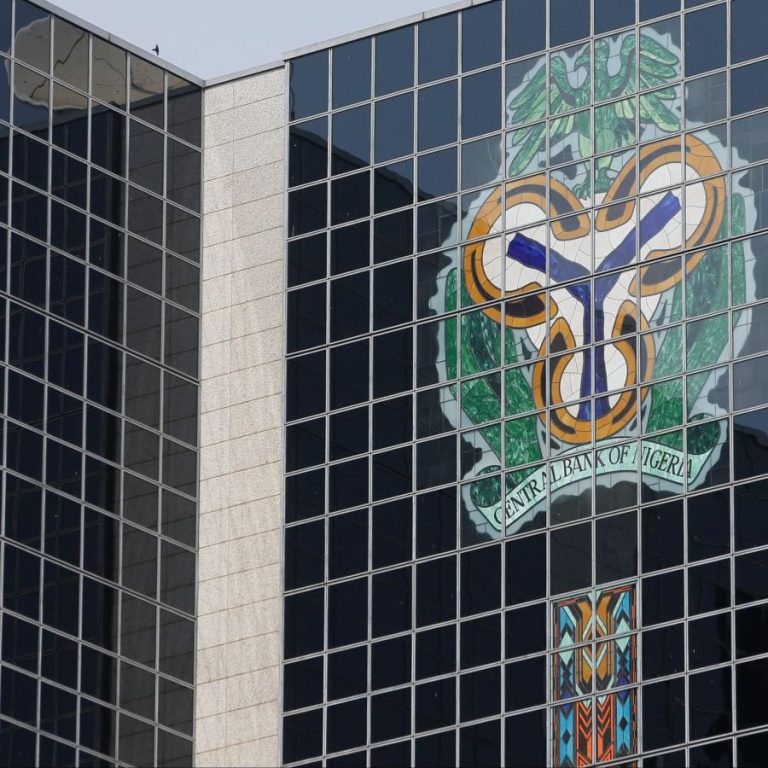
The Central Bank of Nigeria (CBN) has raised the Monetary Policy Rate (MPR) to 17.5% from the previous 16.5%, in its latest push to tame rising inflation.
The new MPR, was announced by the central bank governor, Godwin Emefiele, after the Monetary Policy Committee (MPC) meeting in Abuja on Tuesday.
The MPC raised the monetary policy rate by 100 basis points to 17.5% and kept the asymmetric corridor at +100/-700 basis points around the MPR. Cash Reserve Ratio (CRR) was retained by 32.5% while liquidity ratio was kept at 30%.
Register for Tekedia Mini-MBA edition 19 (Feb 9 – May 2, 2026): big discounts for early bird.
Tekedia AI in Business Masterclass opens registrations.
Join Tekedia Capital Syndicate and co-invest in great global startups.
Register for Tekedia AI Lab: From Technical Design to Deployment (next edition begins Jan 24 2026).
The CRR is the share of a bank’s total customer deposit that must be kept with the central bank in the form of liquid cash, while the bank’s liquidity ratio is the proportion of deposits and other assets they must maintain to be able to meet short-term obligations.
The MPC made the decision to increase the MPR despite the decline in inflation. Nigeria’s inflation rate dropped to 21.34% in December of 2022, a slight decrease from a 17-year peak of 21.47% in November 2022, according to Nigeria’s statistics agency NBS. Emefiele said the inflation decline is an indication that the MPC’s previous decisions to raise the MPR are yielding positive results.
“Members welcome the recent deceleration of the year-on-year headline inflation, noting that the persistence in policy rate hike over the last few meetings of the committee have started to yield the expected decline in inflation,” he said.
The CBN governor said the committee considered perennial scarcity of Premium Motor Spirit known as petrol, the 2023 general elections, continuous rise in energy prices, exchange rate pressure as well as continuous rise in insecurity. He added that the committee members noted that the naira redesign has huge moderating factors to price development on cash.
“MPC was of the view that although inflation rate moderated marginally in December, the economy remained confronted with the risk of high inflation with adverse consequences on the general standards of living.
“Committee, therefore, decided to sustain the current stance of policy at this point in time to further rein in inflation aggressively.
“MPC voted to raise the MPR to 17.5%, retain the asymmetric at +100/-700 basis points around the corridor,” he said.
However, experts say the new interest rate spells further trouble for Small and Medium Enterprises (SMEs) that are already in the grip of unfriendly economic policies.
“The hike in interest rate will hurt investors and the private sector, especially those in the real economy and entrepreneurs. As long as you are in production, and you borrow from the bank for your business, this hike in interest rate will hurt you, for it exposes your risk,” an economist and Executive Director, Centre for the Promotion of African Economies, Muda Yusuf, told The ICIR.
“This is a time businesses are going through various challenges in exchange rate, high cost of diesel, cost of transportation and insecurity. Hiking of rate is compounding their problems,” he added.
Deadline for old naira notes stays
Emefiele also reiterated after the MPC that the CBN’s January 31, 2023 deadline for the validity of the old N200, N500 and N1,000 notes will not be extended. This is despite reports that ATMs are still dispensing old naira notes as the deadline nears.
He said there is no reason to extend the deadline because the 90-day period given by the central bank for the return of old naira notes is enough. Emefiele said that some persons have been hoarding the naira, causing the circulation to rise from N1.4 trillion to N3.2 trillion in seven years.
“I must say here that unfortunately, I don’t have good news for those who feel that we should shift the deadline. My apologies.
“The reason is because just like the President has said more than two occasions and even to people privately, that for us, 90 days, in fact, we feel it is 100 days, that it is enough for anyone who has money or the old currency to deposit it in the bank. And we took every measure to ensure all the banks remain open to receive all old currencies.
“100 days we believe is more than adequate. We called on the banks, not only are we requesting you to extend your banking hours so that you can receive old currencies, but we are also asking you to keep your doors open on Saturdays, ladies and gentlemen, the banks did not even have any reasons to even keep their banking halls open on Saturdays neither did they see the kind of rush that they anticipated.
“We do not see any reason to begin to talk about a shift because people could not deposit their old monies into their banks,” he said.



